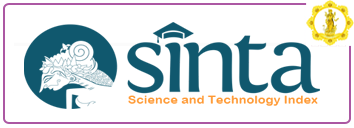Filsafat Nilai dalam Tradisi Joged Nini di Desa Buruan Penebel Kabupaten Tabanan (Perspektif Max Scheler)
DOI:
https://doi.org/10.25078/ds.v4i2.4089Keywords:
Filsafat Nilai, Tradisi Joged Nini, Max SchelerAbstract
The Joged Nini ritual is a form of gratitude to God for the sustenance from the agricultural side so that life can still continue today. How the message is conveyed through dance movements, the addition of musical pieces or accompanying songs which in their entirety can be heard as material for providing information about the implied meaning and the means or artifacts that reflect the meaning of the art of Joged Nini which is essentially a rite of meaning from Tri Hita Karana expressed through a tradition. Max Scheler's perspective which describes a hierarchy of values to help explain the Joged Nini traditional rite by looking at the enjoyment values, vital values and psychological values contained therein. The research method is qualitative using a descriptive approach. The primary data source in the research came from direct interviews regarding the Nini Joged Tradition. As well as literature, journals, books and so on. Data collection was carried out using observation methods, direct interviews with proportional sampling, and literature study. The result, in terms of the enjoyment that can be found in the Nini Joged Tradition, is the dance movements, the tunes of the songs that are sung, the accompanying music, and the tools used by the dancers add to the impression of the beauty and sacredness of this tradition. Vital or Life Values can be seen through community solidarity and togetherness, for example in creating young adults and psychological values regarding efforts to obtain mental peace and a prosperous life based on Tri Hita Karana









